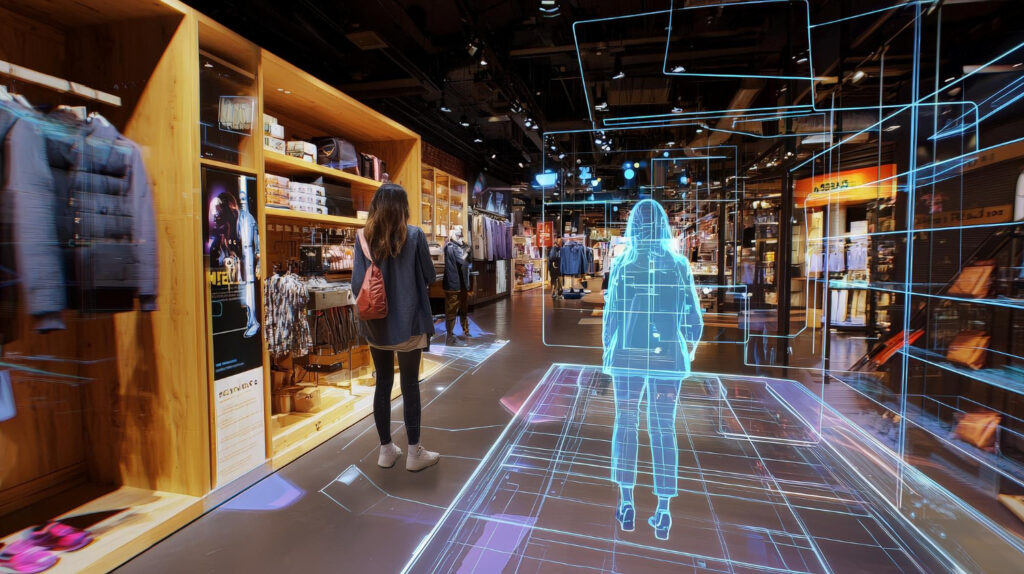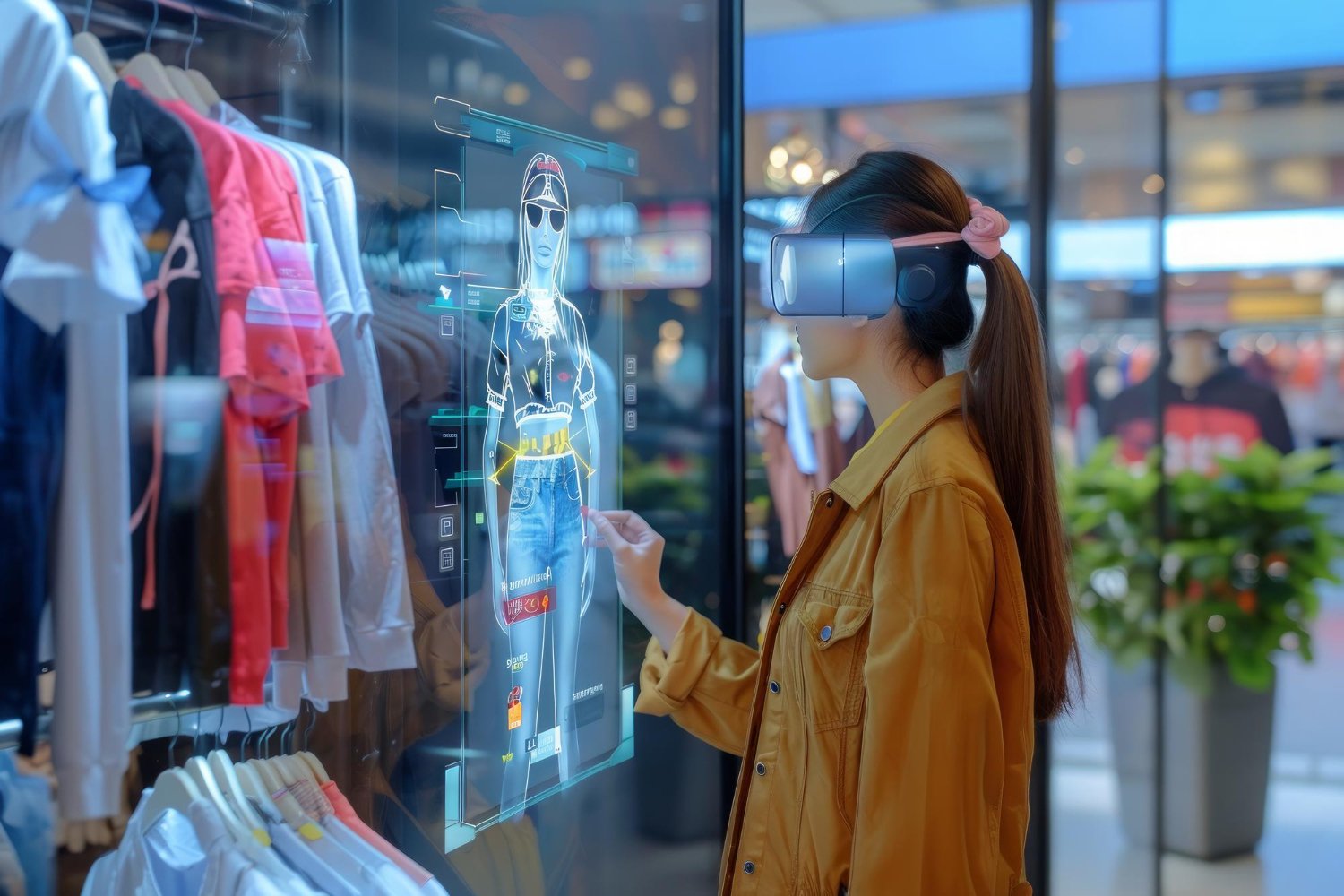In today’s fast-paced digital landscape, staying ahead in the retail sector is a formidable challenge. The integration of Artificial Intelligence (AI) has emerged as a pivotal force, redefining retail strategies and giving businesses a significant competitive advantage.
AI is more than just a trending term; it is a transformative force that fundamentally changes how retailers operate and interact with customers.
This blog post delves into how AI is revolutionizing the retail industry, providing valuable insights and actionable tips for professionals eager to incorporate AI into their operations.
Table of Contents
ToggleUnderstanding AI in Retail
What is Artificial Intelligence in Retailing?
Artificial Intelligence refers to the use of machines to perform tasks that typically require human intelligence. In retail, AI applications range from automating customer service to optimizing supply chains.

By integrating AI into retail operations, businesses can enhance decision-making, improve efficiency, and elevate customer experiences. AI tools can analyze customer behaviors, predict trends, and automate routine tasks, allowing businesses to focus on strategy and innovation.
How AI Integrates into Retail Operations
AI seamlessly integrates into various aspects of retail, offering solutions that streamline processes and enrich customer interactions.
From managing inventory through predictive analytics to offering personalized shopping experiences, AI tools are transforming the way retailers operate. By leveraging AI development services, retailers can enhance their operational efficiency and maintain a competitive edge.
Reshaping Retail with AI
Enhanced Customer Experience
One of the most impactful ways AI is reshaping retail is by enhancing customer experience. AI algorithms can analyze customer data to provide personalized shopping experiences.

For instance, Amazon uses AI to offer product recommendations based on previous purchases and browsing behavior. This personalization increases customer satisfaction and drives sales by presenting relevant products to shoppers.
Operational Efficiency
AI also significantly improves operational efficiency within retail businesses. By streamlining supply chain management, AI tools enable retailers to optimize inventory levels and reduce costs.
Walmart, for example, uses AI-driven systems to predict demand and manage inventory effectively. This not only minimizes waste but also ensures customers find the products they need when they need them.
AI’s Role in Key Retail Functions
Customer Service
AI is revolutionizing customer service with the use of chatbots and virtual assistants. These AI-driven tools handle routine inquiries, provide product information, and assist in the purchase process, enhancing customer interaction.
Automated customer service processes not only improve customer satisfaction but also reduce operational costs, offering a win-win for retailers.
Human Resources and Workforce Management
In the realm of human resources, AI is a powerful tool for enhancing recruitment and workforce management.
By analyzing data, AI can identify the best candidates for job positions and predict workforce needs. This predictive analytics capability allows businesses to plan effectively and engage employees more meaningfully.
Leveraging AI for Data Analysis

Data Analysis and Market Insights
AI helps retailers make data-driven decisions by offering real-time analytics and market insights. This allows businesses to stay ahead of market trends and maintain a competitive advantage. By analyzing data on customer behavior and preferences, retailers can tailor their offerings to meet consumer demands and enhance their market positioning.
AI Development Services in Retail
There are numerous platforms and services offering AI solutions tailored for retail. These services support businesses in implementing AI systems that enhance efficiency and improve customer experiences. Investing in AI development services ensures retailers are equipped to handle the demands of a dynamic retail landscape. Hire AI engineers to maximize the benefits of these solutions.
Benefits of AI in Retail Strategy
Increased Sales and Revenue
AI contributes to increased sales and revenue by leveraging metrics and analytics to optimize marketing strategies.
Retailers can attract more customers and boost sales by offering personalized experiences and targeted promotions. Success stories from industry leaders demonstrate the powerful impact AI has on sales growth.
Improved Customer Retention and Loyalty
AI-driven insights enable retailers to retain customers by understanding their preferences and delivering personalized experiences. By enhancing customer satisfaction, retailers can foster loyalty and build long-term relationships with their clientele.
Cost Reduction and Profit Maximization
AI reduces operational costs by optimizing processes and automating routine tasks. This maximizes profit margins by ensuring resources are used efficiently and waste is minimized. Retailers who adopt AI technologies benefit from a streamlined operation and improved bottom line.
Ethical Considerations and Challenges
Addressing Ethical Implications
While AI offers numerous benefits, it also raises ethical concerns, such as privacy and data security. Retailers must address these issues responsibly to maintain customer trust and comply with regulations. Implementing robust data protection measures and ethical guidelines is crucial for sustainable AI adoption.
Challenges in AI Adoption
Retailers face challenges in adopting AI, including the need for skilled personnel and the high cost of implementation. However, by investing in training and development, businesses can overcome these obstacles and harness the full potential of AI.
The Future of AI in Retail
Evolving Retail Industry
AI is set to continue evolving, introducing new innovations and shaping the future of retail. From enhanced personalization to improved operational efficiency, the potential advancements in AI will enable retailers to thrive in an increasingly competitive market.
Potential Innovations on the Horizon
The future promises exciting innovations in AI, including advanced predictive analytics and automated marketing tools. Retailers who adopt these technologies early will enjoy a significant competitive advantage and be well-positioned for success.
Conclusion
Artificial Intelligence is undeniably a critical component of modern retail strategy, offering unparalleled opportunities for growth and innovation. By reshaping customer experiences, optimizing operations, and driving sales, AI empowers retailers to stay competitive in a rapidly changing industry. Business professionals and organizations looking to integrate AI into their operations are encouraged to explore AI solutions and consider partnering with AI experts to maximize their potential in the retail sector.
For those eager to learn more about AI solutions and how they can benefit their retail business, consider setting up a consultation or demo with AI experts for personalized advice and guidance.
FAQs
How is AI reshaping retail?
AI enhances customer experience, improves operational efficiency, and provides personalized shopping experiences, playing a key role in modernizing retail strategies.
Will AI take over retail jobs?
While AI automates certain tasks, it creates new opportunities for skilled roles, particularly in areas like AI management and programming.
What is artificial intelligence in retailing?
AI in retail involves using smart algorithms and data processing to improve shopping experiences, optimize inventory, and enhance customer service.
How is artificial intelligence reshaping business?
AI transforms businesses by enabling data-driven decision-making, improving operational efficiency, and creating personalized customer experiences.









